In Memoriam: Right to Work Warrior Gary Glenn
On July 27, Gary Glenn passed away after a seven-year battle with cancer. He is survived by his wife of 40 years, Annette, and their five children and nine grandchildren.
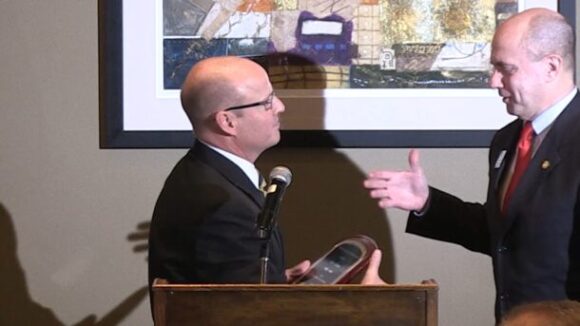
On July 27, Gary Glenn passed away after a seven-year battle with cancer. He is survived by his wife of 40 years, Annette, and their five children and nine grandchildren.
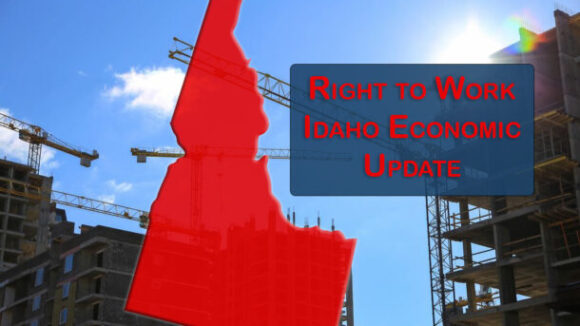
Two of the most recent investments in Right to Work Idaho are coming from The Stow Company and Facebook's Meta.
Shamrock Foods truck drivers have successfully removed unpopular Teamsters Local 483 union officials from their workplace, following a blowout decertification election in which workers voted 26-4 to oust the union.
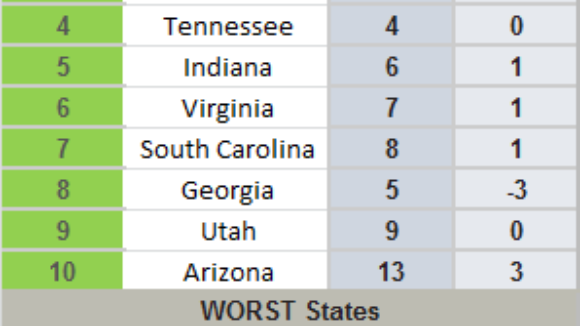
In Chief Executive Magazine's Best and Worst States for Business, all the top ten were from Right To Wok States. Unsurprisingly, Compulsory Unionism States took all bottom ten positions. States ranking from 1-10 are: Texas, Florida, North Carolina, Tennessee, Indiana, Virginia, South Carolina, Georgia, Utah, Arizona. States ranked from the worst, 50-41: California, New York, Illinois, Massachusetts, Michigan, New Jersey, Connecticut, Pennsylvania, Oregon, Hawaii. From the Chief Executive: 2012 Best & Worst States for business. Source: Chief Executive Magazine
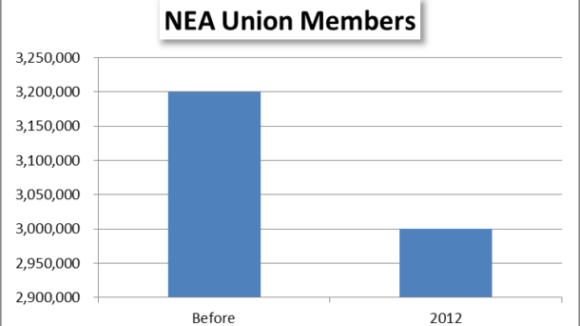
It appears efforts to provide teacher’s with the ability to choose or not to choose to join a union has resulted in a remarkable 200,000 teachers deciding not to rejoin their union. The Education Action…
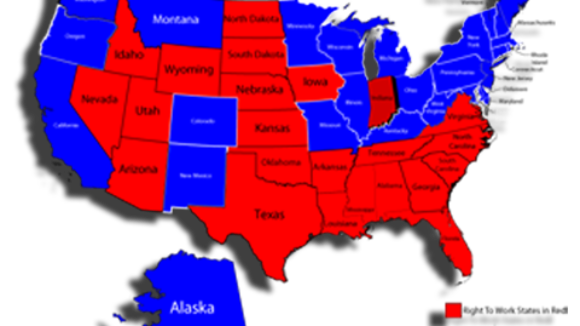
States Seeking a 'Brain Gain' Should Bar Compulsory Union Dues The nine states with the greatest 2000-2010 gains in their college-educated adult populations all protect the Right to Work. Of the nine states with the smallest gains, only Hurricane Katrina-devastated Louisiana does so. (Source: November-December 2011 National Right to Work Committee Newsletter) Federal data on the American workforce and employment and unemployment rates show that, even with our country struggling through the most severe recession in decades and a so-far anemic recovery, employer demand for college-educated employees has continued to rise at a surprisingly rapid clip. From 2000 to 2010, the total population of the U.S., aged 25 and over, grew by 12.1%, but the number of people in that age bracket with at least a bachelor's degree grew by 29.3%. And in October 2011, according to the U.S. Bureau of Labor Statistics, the labor force participation rate for civilians aged 25 or older with one or more higher-education degrees was 76.4% (not seasonally adjusted), barely lower than it was before the recession started. That same month, the nationwide unemployment rate for the pool of 47.3 million college-educated adults 25 or over was just 4.2%, well under half the average for the workforce as a whole. The bottom-line significance of these data is that employers across the country typically have more difficulty finding a qualified college-educated person to fill a position than a college-educated person has finding a good job. Of course, not everyone who holds a bachelor's degree and is in the work force is doing well economically. But generally speaking there is still a "seller's market" for college-educated labor in America today. Furthermore, many businesses that sustain large numbers of jobs for people with associate's degrees, high school diplomas, or less education also require a substantial number of college-educated people to operate smoothly. Therefore, the rate at which a state is gaining college-educated people, relative to the national average, is in itself a good indication of how successful the state is in creating and retaining good jobs. 'Highly Educated Employees, Like Other Employees, Benefit From Right to Work Laws'
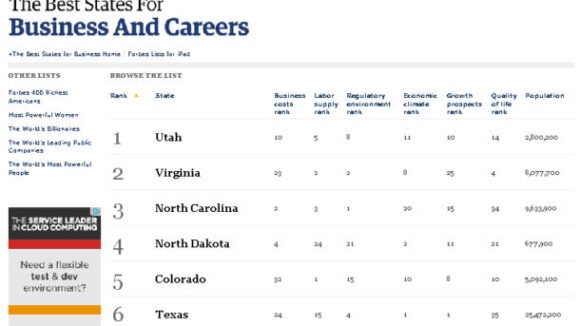
When Forbes studied The Best States for Business and Careers, Indiana ranked 34th. Indiana ranked 49th in economic growth prospects. A Right To Law Act would change its 49th ranking. The…
Development Counselors International (DCI) ranked the top five and the bottom five states, in terms of what states provide an economic climate most favorable to business. The rankings show that states following right-to-work laws held the top five spots, while states following more union-friendly rules held the bottom five spots. DCI asked corporate executives and representatives to name the three states they thought provided the "most favorable business climates," and the three states least favorable to business. Texas ranked #1 in the final survey results, while California ranked dead last at #50. DCI provided this commentary on the results: Common themes of low operating costs and a pro-business environment emerge for the top five [original emphasis]. Positive responses emphasized costs, low taxes and incentive offerings, while negative opinions cited high taxes, anti-business climates and fiscal problems/state deficits. Here are the top five states, in order: Texas, North Carolina, South Carolina, Tennessee, Florida. Here are the bottom five states, starting with with the worst ranked: California, New York, Illinois, New Jersey, Michigan.
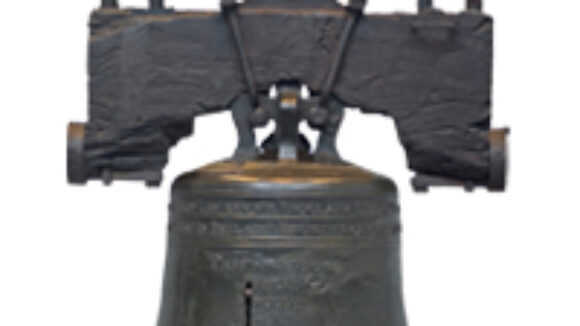
Matt Mayer of the Buckeye Institute debunks the long-term economic growth without Right To Work freedom is sustainable. Mayer uses a Columbus Dispatch reporter Joe Hatlett column that featured Former Michigan Gov. Jennifer Granholm to expose the fact that corporate welfare and reduced regulations ignore the “proverbial elephant in the room weighing down” compulsory union states like Indiana, Ohio, Illinois,, and Michigan. From Matt Mayer’s post: “With Michigan bleeding jobs and tax revenues, Granholm said she followed the corporate playbook in her attempt to close a huge state budget deficit and make Michigan more competitive. ‘In listening to the business community, I cut takes [sic] 99 times, and I ended shrinking government more than any state in the nation. In my two terms, I cut more by far than any state in the nation. And yet, we still have the highest unemployment rate. There was no correlation.’ Granholm conceded that streamlining business regulations and lowering taxes — Kasich’s economic recovery mantra — are helpful, but they aren’t a panacea…[l]abor costs, help with start-up costs and proximity to markets are other factors.” Hallett and Governor Granholm fail to mention why streamlining regulations and lowering taxes aren’t helping the northern states (located within 50 percent of the U.S. population and with low start-up costs) compete against the southern and western states. Instead, Hallett ignores the obvious answer and pleads for an end to corporate pork (with which we enthusiastically agree). The reason Michigan and Ohio can’t compete is that the southern and western states already have fewer regulations and lower taxes, so “catching up” with those states still leaves the proverbial elephant in the room weighing down the northern states. Plus, those states are also pushing for lower taxes and fewer regulations, so the northern states are perpetually behind them. The elephant, which Governor Granholm does hint at, is labor costs, or, more specifically, unionized labor costs (see: General Motors and the United Auto Workers). As I noted in Six Principles for Fixing Ohio, “Of course, tax and regulatory burdens also impact a state’s economy. Although many of the forced unionization states have heavy tax burdens and many of the worker freedom states have light tax burdens, some heavily taxed worker freedom states (Idaho, Nevada, and Utah) had the strongest sustained job growth from 1990 to today. Similarly, a few moderately taxed forced unionization states still had weak job growth (Indiana, Illinois, and Missouri). The combination of both a heavy tax burden and forced unionization is deadly when it comes to job growth, as 11 of the 15 worst performing states are ranked in the top 20 for high tax burdens.” If Ohio and the other states from Missouri to Maine want to truly compete with Texas, Georgia, and South Carolina, then those states need to enact laws that protect the rights of workers not to join a labor union to get a job.